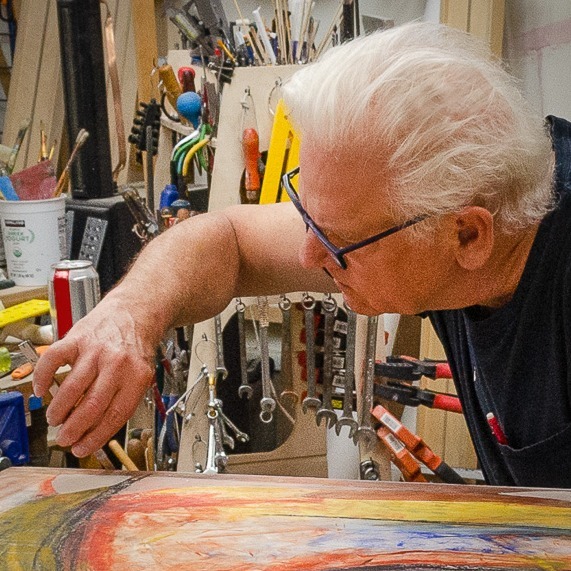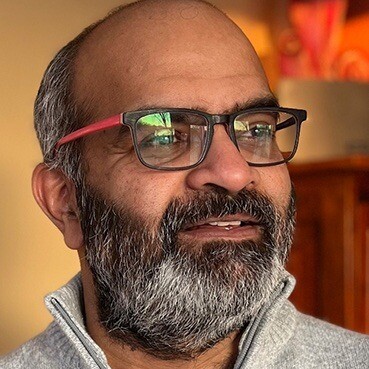HabitAware has all the elements of a successful tech start-up: A new digital health device to treat an unmet need, patented technology backed by a multi-skilled team, a strong business case, and support from tech start-up experts, including Minnesota High Tech’s MN SBIR program. The company is minority and woman-led, contributing diversity to the tech start-up community.
 In 2018, those elements led to an SBIR award for HabitAware of up to $300,000 from the National Institute of Mental Health for research. (Read the news release here). Pat Dillon, MN SBIR director, said “The SBIR Phase I grants are highly competitive and it shows a vote of confidence in HabitAware’s technology and capabilities. The most exciting aspect is the potential for additional SBIR funding of $1.5 million to continue this R&D toward commercialization of Keen.”
In 2018, those elements led to an SBIR award for HabitAware of up to $300,000 from the National Institute of Mental Health for research. (Read the news release here). Pat Dillon, MN SBIR director, said “The SBIR Phase I grants are highly competitive and it shows a vote of confidence in HabitAware’s technology and capabilities. The most exciting aspect is the potential for additional SBIR funding of $1.5 million to continue this R&D toward commercialization of Keen.”
Compelling need: It’s personal … and international
The innovation that became HabitAware’s Keen product evolved from a personal story – and personal passion – to treat a disorder called trichotillomania, or compulsive hair pulling. Co-founders Aneela and Sameer Kumar had been married for two years when Sameer discovered Aneela had been pulling the hair from her eyebrows and eyelashes. She had hidden her trichotillomania from family and friends since she first began her hair-pulling at age 12.
“I had always thought there was something seriously wrong with me, I was weird, and that no one would want to be my friend if they knew,” Aneela recalled. “One day, Sameer caught me without makeup and I was like a deer in headlights. He was super supportive. We talked about it. We did some research.”
They found trichotillomania affects about 180 million people worldwide. “Unfortunately, sufferers hide in silence, shame and the fear of judgement,” Sameer said. Their conversations led to discovery. “One day we were sitting on the couch and Sameer grabbed my hand. I said I wished I had something to notify me that wasn’t you,” Aneela explained. “It’s just very annoying when you have a loved one telling you not to do something.”
The moment sparked innovation. They would develop a wearable device, similar to a fitness tracker, to generate a vibration when it sensed hair pulling, making the wearer aware of the behavior, and work on choosing another behavior instead. This process is known as Habit Reverse Training (HRT) and is one of the few evidence-based treatments for trichotillomania.
Local and national and international resources
The Kumars’ path to launch HabitAware in 2015, and the Keen bracelet, led them to resources from local to international. Initially, they turned to family and friends, then the tricotillomania community.
The Kumars were optimistic about building a wearable device. Sameer had a technical background. “We knew our idea was feasible,” Sameer said. “But we weren’t technically able to build it.” They looked for local resources, and found IoT Fuse, a Meet-Up group based in the Twin Cities which fosters IoT innovations. At an IoTFuse sponsored Hack Day, the Kumars met their technical cofounders, Kirk Klobe and John Pritchard.
Someone suggested they sit in on a local presentation by Duncan Turner, managing director of HAX, a hardware accelerator based in China and San Francisco. Sameer and John told Turner about their idea, and he suggested they apply to HAX. “We threw in an application but weren’t seriously considering uprooting our lives to move to China,” Sameer said. But when HAX accepted HabitAware, the Kumars decided to dive in. They packed their bags and moved, along with their 2-year-old child, to HAX’ R&D location in Shenzhen, China, where they spent four months building their prototype and business plan.
The Kumars also found a national network through the TLC Foundation for Body-Focused Repetitive Behaviors, a nonprofit that provides support to help people overcome and heal body-focused repetitive behaviors: compulsive hair pulling, nail biting, skin picking and other BFRBs. At TLC’s national conference, the Kumars connected with scientists on the TLC Foundation Scientific Advisory Board who are involved in BFRB research, including Douglas Woods, PhD, Marquette University Psychology Department, a leading researcher in the field of trichotillomania, and Carol Novak, M.D., a consultant based in the Twin Cities.
Their path led to Pat Dillon, director of the MN SBIR program based at the Minnesota High Tech Association. Dillon provided hands-on advice and guidance to assist the HabitAware team through the complex process of preparing and submitting a proposal to the National Institute of Health. MN SBIR is the state program to assist seed, early stage, emerging and existing firms (1-500 employees) to successfully access non-dilutive federal funding through the Small Business Innovation Research (SBIR) and Small Business Technology Transfer (SBTT) Programs. MN SBIR is funded in part through a cooperative agreement with the U.S. Small Business Administration and the Minnesota Department of Employment and Economic Development and the University of Minnesota Office for Technology Commercialization.
Multi-skilled Team and Patented Technology
The HabitAware team had a prototype and patented technology, along with a strong business case and a plan. In 2017, they submitted an SBIR application to the National Institute for Mental Health, a division of the National Institutes of Health. “We scored well, but not quite good enough,” Sameer said. The review gave the team direction to improve. In 2018, they submitted another SBIR application and this time was awarded up to $300,000 from the NIMH.
The SBIR funds will pay for a study to evaluate the feasibility of treating trichotillomania using Keen, in conjunction with cognitive behavioral therapy. Dr. Douglas Woods at Marquette University is a principle investigator for the study. “Keen has great potential to improve trichotillomania outcomes,” said Woods. “We are looking forward to collaborating to determine the effectiveness of Keen as a treatment for trichotillomania and other body focused repetitive behaviors.”
HabitAware is currently selling its Keen product directly to consumers. If the study helps validate the treatment, that will draw B2B buyers and potentially investors, said Sameer. “Right now, there are no proven treatments. This is an affordable device and app.”
Keen has already drawn additional investors. This year, Backstage Capital, a Los Angeles-based venture capitalist that invests in minority entrepreneurs, announced its first 100 start-up investments, including HabitAware.
Learn more about the MN SBIR program at MN High Tech and hear a Q&A with HabitAware CEO Sameer Kumar with insights and lessons of a biotech start-up on Episode 5 of Tech Hotdish, the podcast produced by MN High Tech.


























